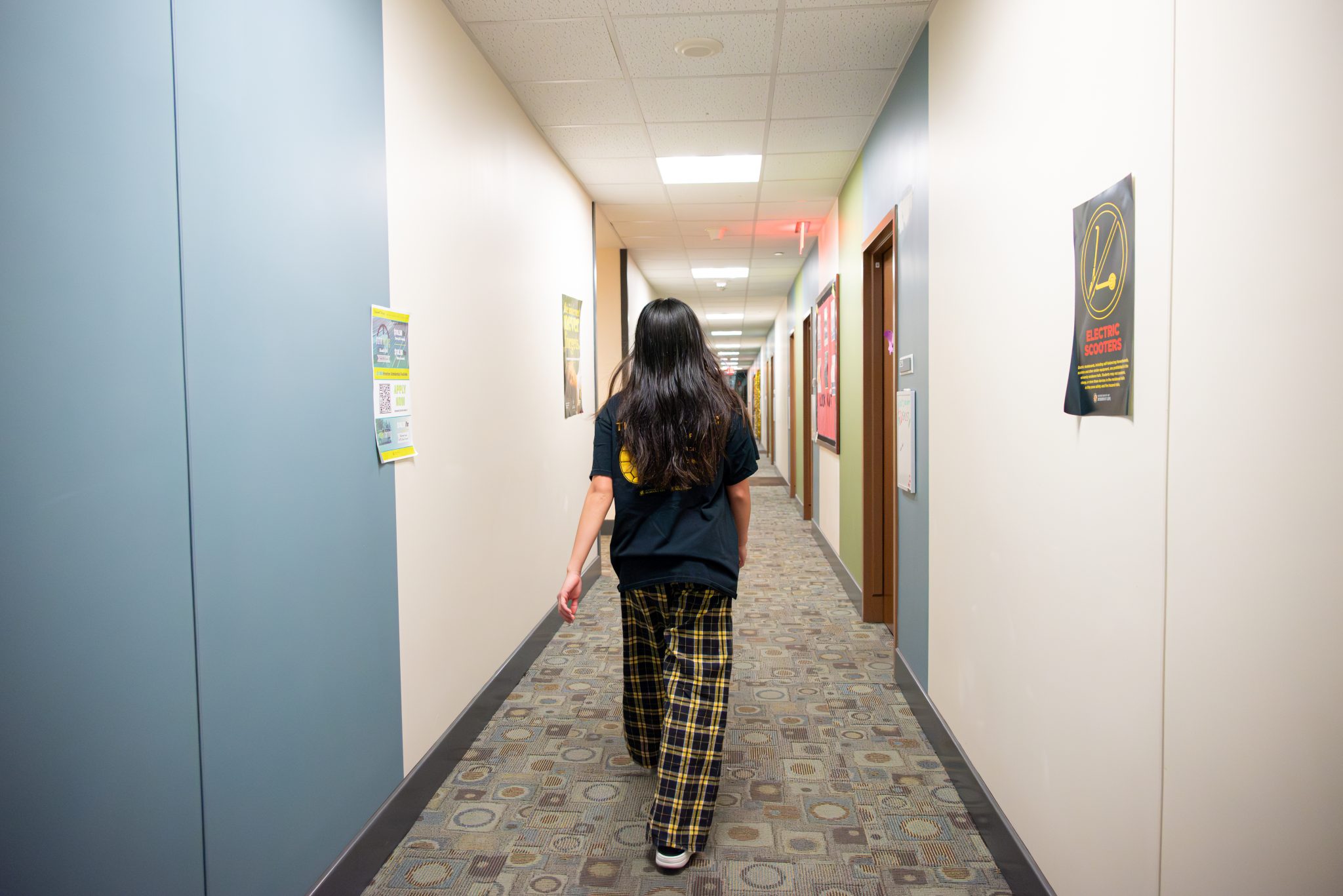Many University of Maryland resident assistants are advocating for additional compensation for their work given their long hours and responsibilities.
RAs currently receive free room and board at this university as well as 200 dining dollars per semester for their work as part of their meal plan. But many feel they should receive more support and money from the university because of the workload and time they put into their residents and buildings.
Maeve Campbell, a sophomore psychology and marketing major, is a first year RA in Johnson-Whittle Hall. Campbell said she believes RAs should receive more compensation for their work since they live and work in the same space.
“I do believe that there should be another type of payment on top of that, because you work where you live,” Campbell said. “[Living expenses] itself is covered, but I feel like that is kind of necessary if you’re going to be expected to be living where you work.”
Campbell said RAs are required to work 21-hour shifts some weekends. She said they should at least receive compensation for these longer shifts where RAs are on call for extended periods of time.
Senior government and politics major Quentin Hoglund is in his second year as an RA in Ellicott Hall. Hoglund said he received the RA “death sentence” because of the hall’s reputation.
[Late hours, lack of safety measures headline concerns for UMD CAs]
Hoglund said the hall is “overdue” for many necessary renovations and lacks necessities like air conditioning and showers with hot water. Like Campbell, he believes RAs are entitled to additional compensation.
“I think if the university did just something a little bit more, it would be greatly appreciated by the RAs,” Hoglund said. “If that 200 dining dollars was changed to 400, I feel like I would show a little more appreciation towards the job.”
Hoglund added that additional compensation could also look like reduced costs for parking passes or parking spots at dorms reserved specifically for RAs.
Hoglund said RAs in dorms with less amenities should be compensated differently.
“[I have] a very different experience than somebody who’s an RA in Johnson-Whittle, Pyon-Chen, Prince Frederick, Oakland, all of these nicer residence halls,” Hoglund said. “And to think that we’re essentially, you know, being paid the same, it’s a little backwards.”
The Department of Resident Life said RAs are an integral part of the department’s team.
“As student leaders with responsibilities to support and assist their peers within the residence halls, and given the flexible and variable nature of the role, RAs receive compensation of full remission of room and board fees,” the Department of Resident Life wrote in an email to The Diamondback Friday. “Paying for each RA’s housing and dining costs ensures that RAs do not have to incur those costs on their own and allows us to compensate RAs competitively.”
[UMD students, staff advocate for $22 minimum wage]
Salma Tagnaouti, a junior information science major, is an RA in Pyon-Chen Hall. Tagnaouti said RAs should receive a stipend.
Tagnaouti said that as an RA, she is on the clock 24/7 dealing with issues such as conflicts and communication with residents.
“It can be a lot of stress on us,” Tagnaouti said. “So I think having that extra compensation would just make the job feel a lot more worth it.”
Hoglund said that compensating RAs further would show a respect from the university that he thinks is necessary for dorms to thrive.
“If we’re not respecting and taking care of the people who are responsible for fostering these inclusive communities in the residence halls, how do we expect these inclusive communities to be maintained?” Hoglund said.



